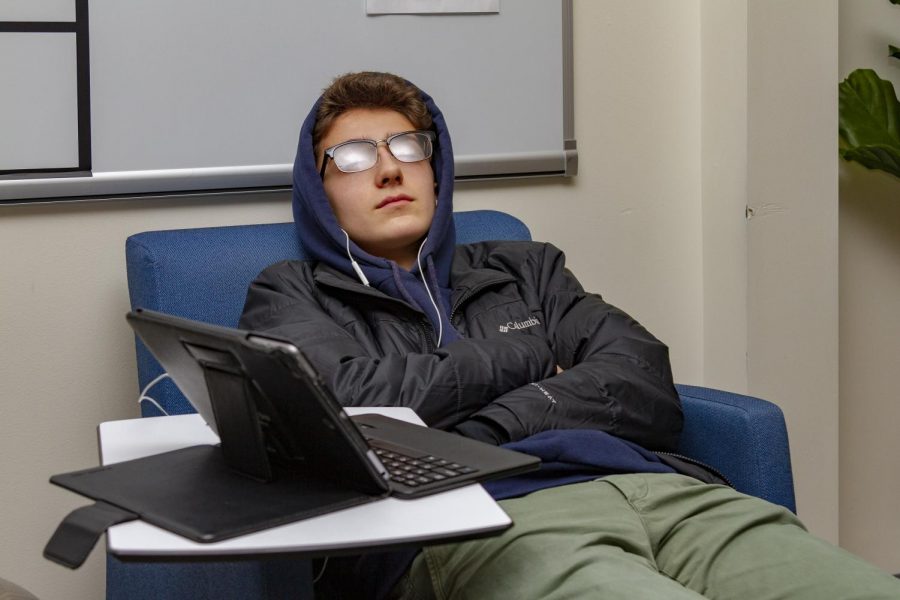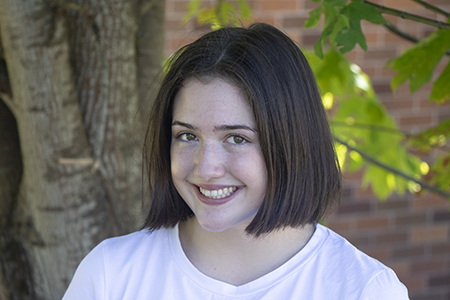Tips For a Better Night’s Sleep
Your sleep can be affected by stress from your everyday life, impacting how you go throughout your day.
December 4, 2019
Disclaimer: Consult with a parent and/or doctor before trying sleep supplements.
Stressed and sleep deprived, I would go through the motions of my day half awake and I would find myself struggling to stay engaged in class.
Balancing a time consuming agenda takes energy and focus. I knew I needed to adjust my sleep schedule when it started to affect my mood and mental health.
There is no doubt that high school can be challenging and stressful. Sometimes the stress you feel can impact getting a good night’s rest. Lack of sleep can limit productivity, your ability to learn, and proficiency to safely drive on the road.
Here are some of the methods I use now to relax and get the sleep I need, in order to succeed.
Get off your electronics at least one hour prior to getting ready for bed
If this is a challenge for you, try placing your phone across the room. This creates space between you and your device, so it is not an immediate distraction, but allows you to still utilize it as an alarm clock if needed.
An effective substitute for using electronics before bed is reading, because you aren’t exposing yourself to screens that activate the neurotransmitters of your brain and keep you from falling asleep.
Lower your room temperature
Rapid eye movement sleep is a stage of sleep that occurs in intervals during the night approximately 90 minutes after falling asleep, and it is when most brain development takes place. If your bedroom is too warm, it can prevent your body from going into REM sleep, so try setting your thermostat cooler than you would otherwise have it.
Try white noise
Can’t sleep if it’s too quiet? Having a fan in your room or listening to sleep inducing podcasts can encourage relaxation and help you fall asleep. Apps such as Spotify and Apple Music offer a wide selection of white noises such as ocean sounds and guided meditations.
Limit caffeine
Aim not to drink beverages high in caffeine past 6pm. Caffeine is a stimulant that can disrupt your biological sleep clock. You can substitute caffeinated drinks for water, caffeine-free tea, etc.
Practice four square breathing
Four square breathing (also known as box breathing) is a technique proven to ease episodes of extreme anxiety.
Step 1: “Let out all of the air in your lungs to the count of four.”
Step 2: “Keep your lungs empty for a count of four.”
Step 3: “Inhale for a count of four.”
Step 4: “Keep your lungs full for a count of four.”
Repeat as needed.
Set a sleep schedule
Studies show that adolescents ages 14-18 need 8-10 hours of sleep per night. Balancing a schedule with massive amounts of homework and extracurricular activities can influence how much sleep you get.
Investing in a planner to keep track of all your assignments and schedule tasks is a good way to reduce stress. With a planner, you can budget your time to help prioritize homework and make sure you’re getting sufficient sleep.
Consistently going to bed and waking up at the same time each night can increase alertness and concentration.
Sleep promoting supplements
Magnesium is a supplement that helps activate neurotransmitters responsible for sleep. It has been shown to improve sleep when taken before bedtime.
Melatonin is a hormone naturally produced in the body, but taking the supplement before bedtime can increase sleep by sending signals to your brain when it’s time for sleep.
A better night’s sleep
I hope these methods help you manage your stress and prioritize a good night’s sleep. Next time you find yourself tossing and turning, remember that the burden of schoolwork will pass and grades are important, but they do not define you. You can try these methods to get the rest you need.





